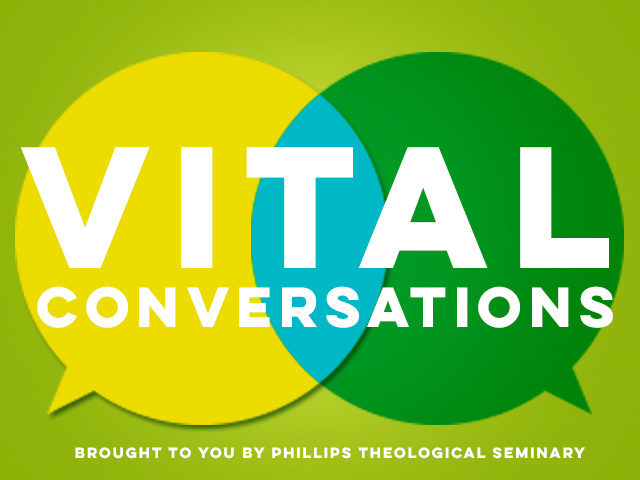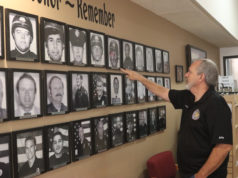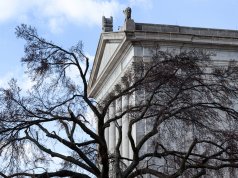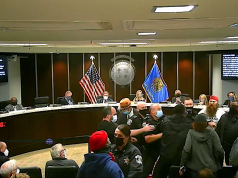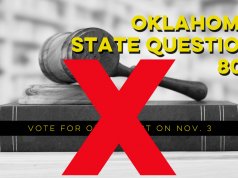
(Editor’s Note: Vital Conversations is a running series of commentaries from various faith leaders. The series is sponsored by Phillips Theological Seminary, though contributions come from theologians who are unassociated with the seminary. To submit work for Vital Conversations, simply email Editorial@NonDoc.com.)
Sundra Flansburg and Pastor Theodis Manning met several years ago when Manning was collaborating to lead a northeast OKC community discussion on Michelle Alexander’s book, The New Jim Crow, and Flansburg was helping to build a racially diverse organizing group called VOICE (Voices Organized in Civic Engagement).
Together, the two are working on criminal justice reform, approaching the effort from a place of faith. They are co-leading VOICE’s efforts on restorative justice, working to build a constituency of Oklahomans who will work together for criminal justice reform. VOICE is not only racially diverse, but it brings together leaders from a range of faith traditions.
Below is a brief dialogue the two have authored to bring this topic greater public attention.
Sundra Flansburg: Coming from my Unitarian Universalist (UU) upbringing, our organizing work in restorative justice fits well with the UU focus on this world rather than the next — placing deed over creed. I come at this work with an anger about the ways that the current system dehumanizes the people who commit crimes, the victims of those crimes, and even the workers who are a part of the system. It feels like so much of what we are struggling against in this work is a deadening of compassion and a cutting off of human possibility. I don’t negate the violence and suffering that many crimes cause; however, my values call me to look first for the dignity and worth of every person. There is something divine in everyone, and through the relationship building work of VOICE, I witness that firsthand. Systems that work to break that down and break people down must be changed.
Pastor Manning, what is the relationship between your work and your faith? Why do you do this work?
Theodis Manning: My passion and reason for working to reform our current justice system is driven by the blatant injustice that I see and oftentimes have to deal with personally. My faith encourages Christians to feed the hungry, visit the sick, be hospitable to strangers, clothe the naked, and visit those who are incarcerated (Matthew 25:34-36). Due to the focus in many of our church-outreach ministries, I often hear and deal with the real stories of bruised people who have been adversely affected by our current justice system. As a devout Christian and devoted pastor, I believe our faith should drive Christians to do everything possible to make this world a better place in which to live. We must also leave this world in a better condition than it was in when we arrived.
Sundra, thinking about this in reverse, what do you take back to your church and faith as a result of this work?
Flansburg: The community of my church is where I receive my daily dose of fellowship and support when I need it. It’s where I deepen my spirituality and try to learn from others. It is the solid base from which I try to put my values and beliefs into action; however, if there is one concern I have with Unitarian Universalism, it is that it can be too individualistic. We can become reticent to truly challenge our beliefs. We can surround ourselves with wonderful people and be in a community that bends over backward to let us do and believe pretty much what we are determined to believe. That’s an oversimplification, but my work in organizing brings me into contact and relationship with a wide variety of beliefs and faiths and experiences. In this work of the heart and head, I am called to give something, negotiate, and work for community. Part of that work of being in relationship requires us to yield just a little of our individuality, not just support everyone doing his or her own thing. Community has to not only be about freedoms and individuals, but about what we are giving of ourselves to create something beautiful and holy. By better balancing the needs of the community with our individual wants and desires, I believe we better honor those who come with different beliefs and experiences. In building that beloved community, all of us learn from each other, and our work becomes more effective in the wider community.
Pastor Manning, what do you take from our restorative justice and organizing work that informs your church?
Manning: Likewise, my interaction with VOICE and the various congregations has allowed me the unique privilege of working and fellowshipping with many good people of different faiths, backgrounds and belief systems. In light of this, our work not only reaches and benefits a wider variety of people from different backgrounds and social economic statuses, but it also offers all of our working congregations the opportunity to look more like the communities in which we serve: many concerned citizens — diverse in race, religion, denomination and social economic backgrounds — working together on issues that affect people who feel they have no voice to speak for themselves. I believe because of the diversity and our combined efforts, we have been able to counteract many community issues at a much faster pace than usual. Moreover because of this diverse and unified effort, I have met many good people who otherwise I probably would have never had the privilege of meeting. But more than that, I have made some good life-time friends and fellow laborers in my quest to please God, fulfill my divine purpose and leave this world in a better place than it was when I arrived.
Previous installments of Vital Conversations
Save persecution label for when liberty is endangered
Science, religion agree: ‘We are part of nature’
Ten Commandments: Reactions spur moral discussion
Vital Conversations: Christianity needs a Jon Stewart
Imam: A Muslim is your brother from another mother
Pope’s visit should ‘enrich our impoverished discourse’
Vital Conversations: Truth seekers can lose arguments
‘Vital Conversations’ help spiritual minds









